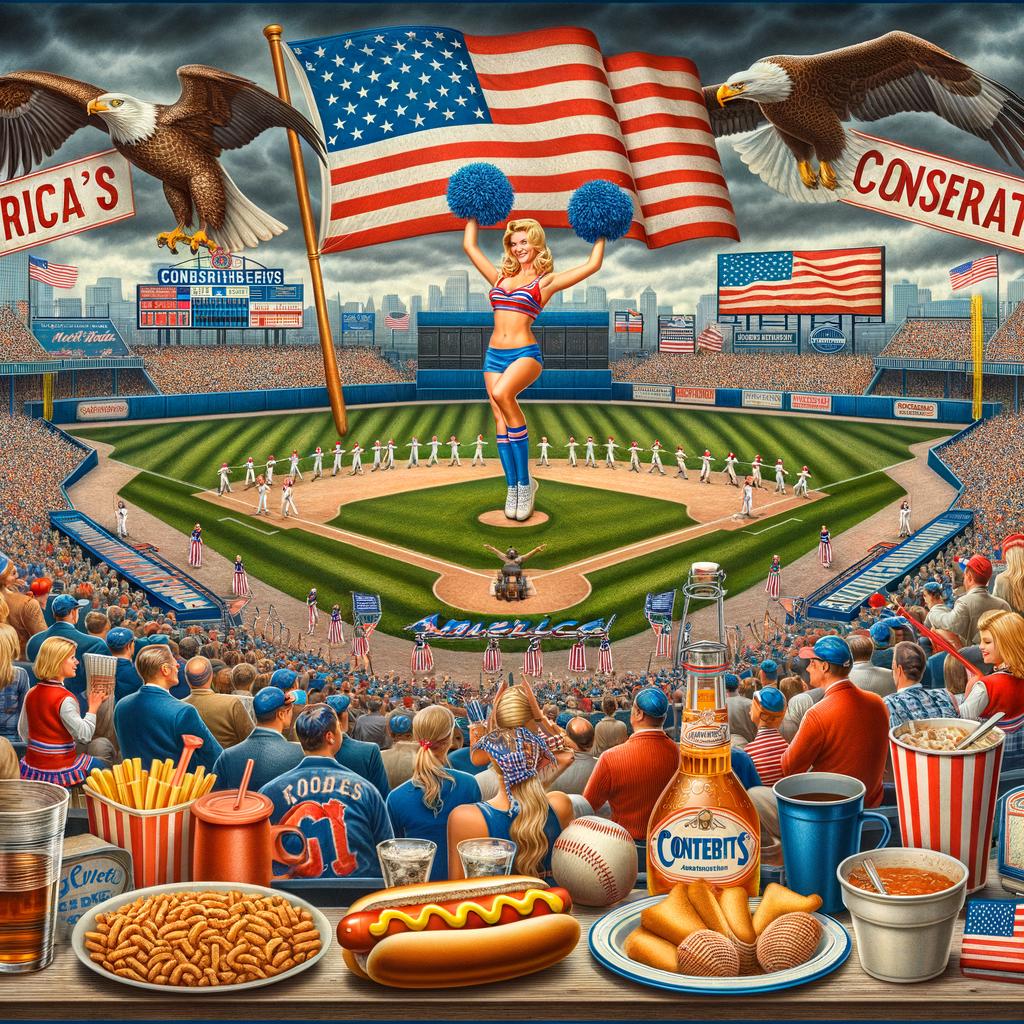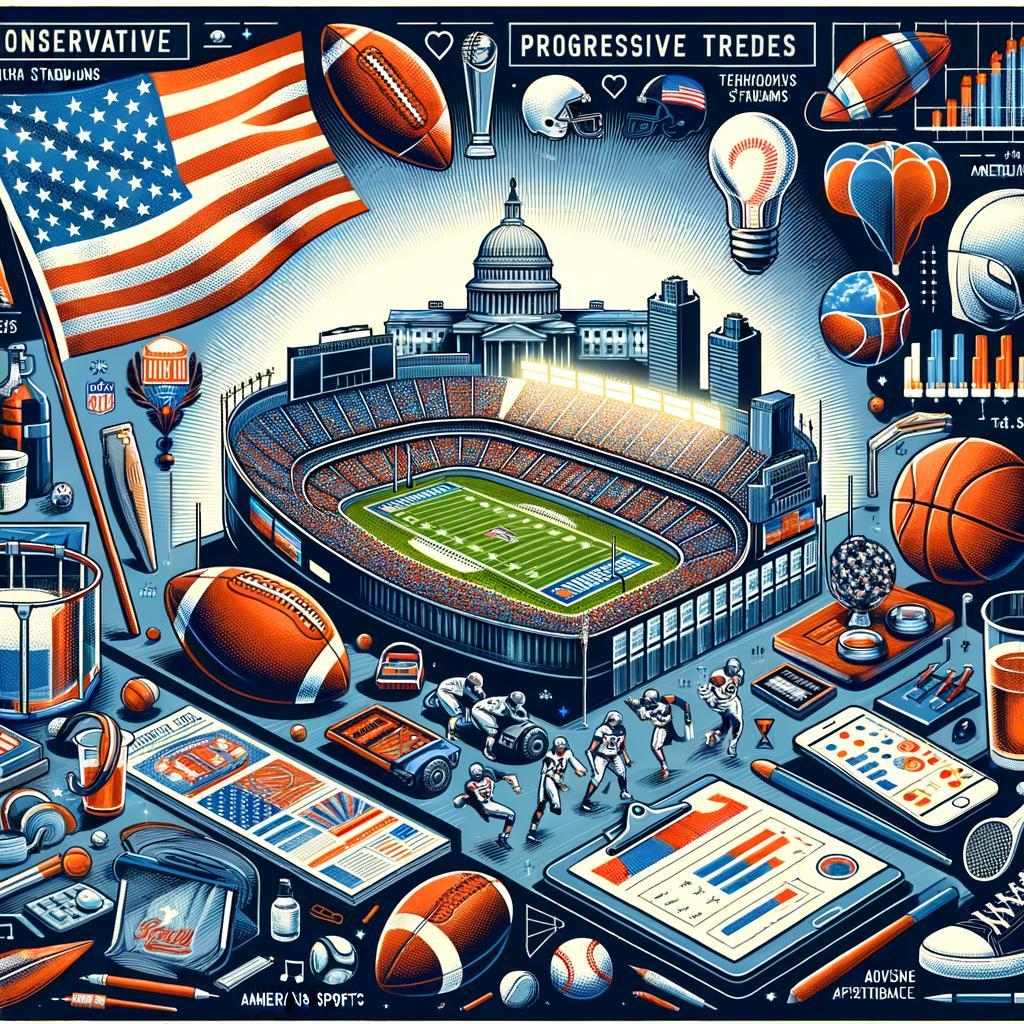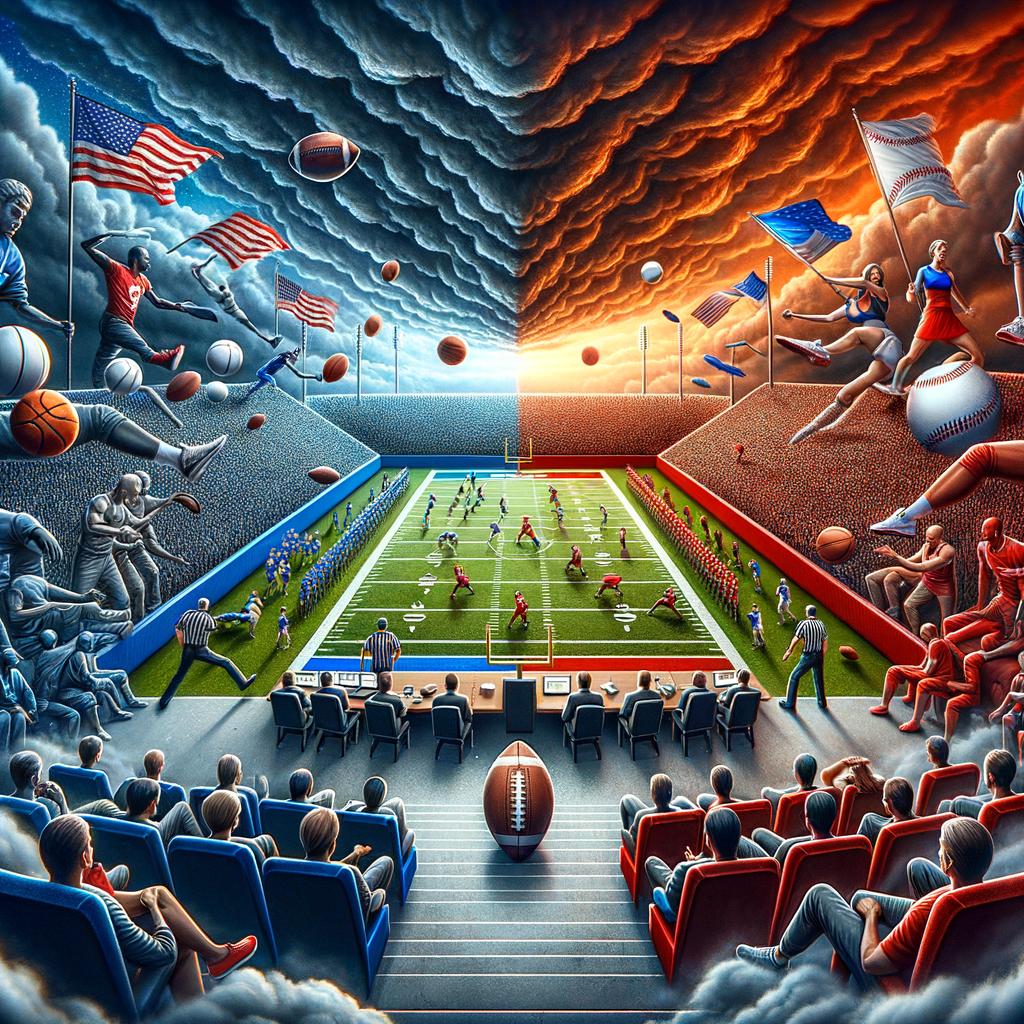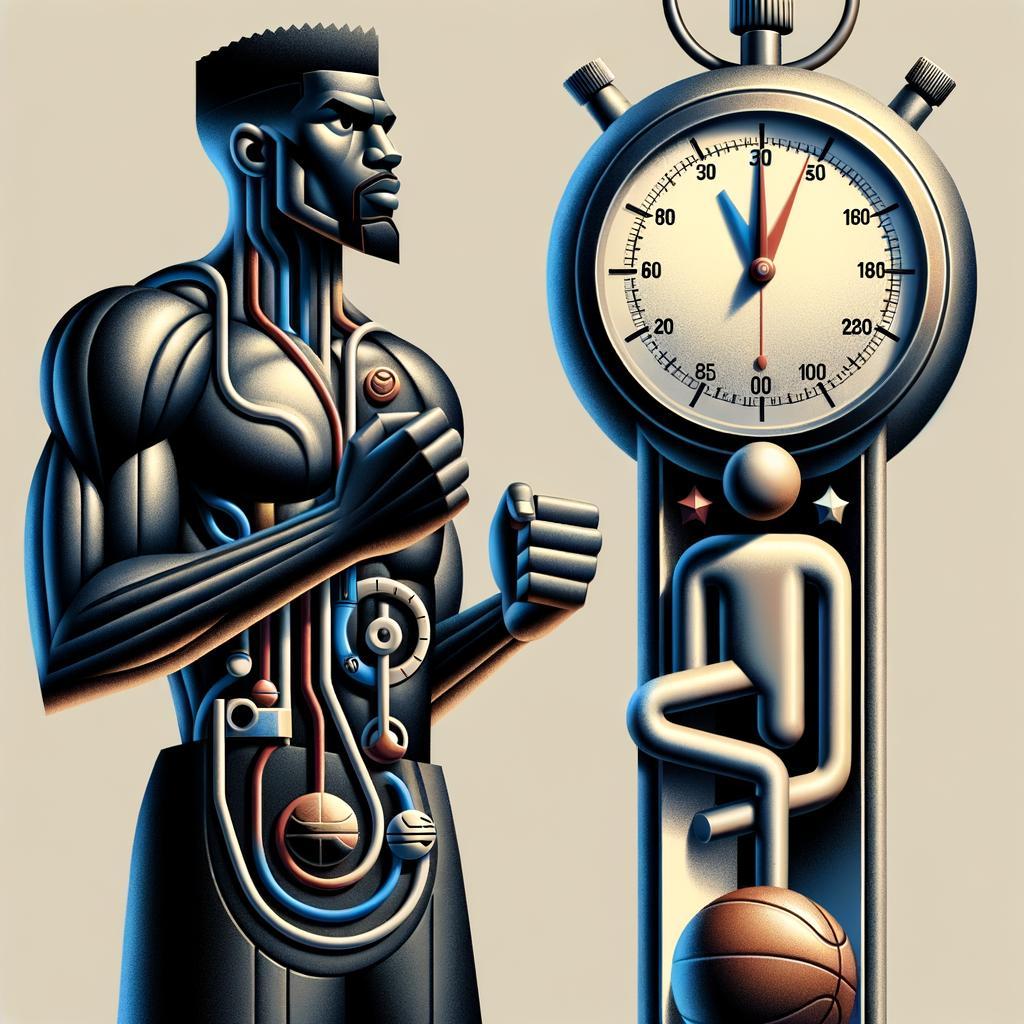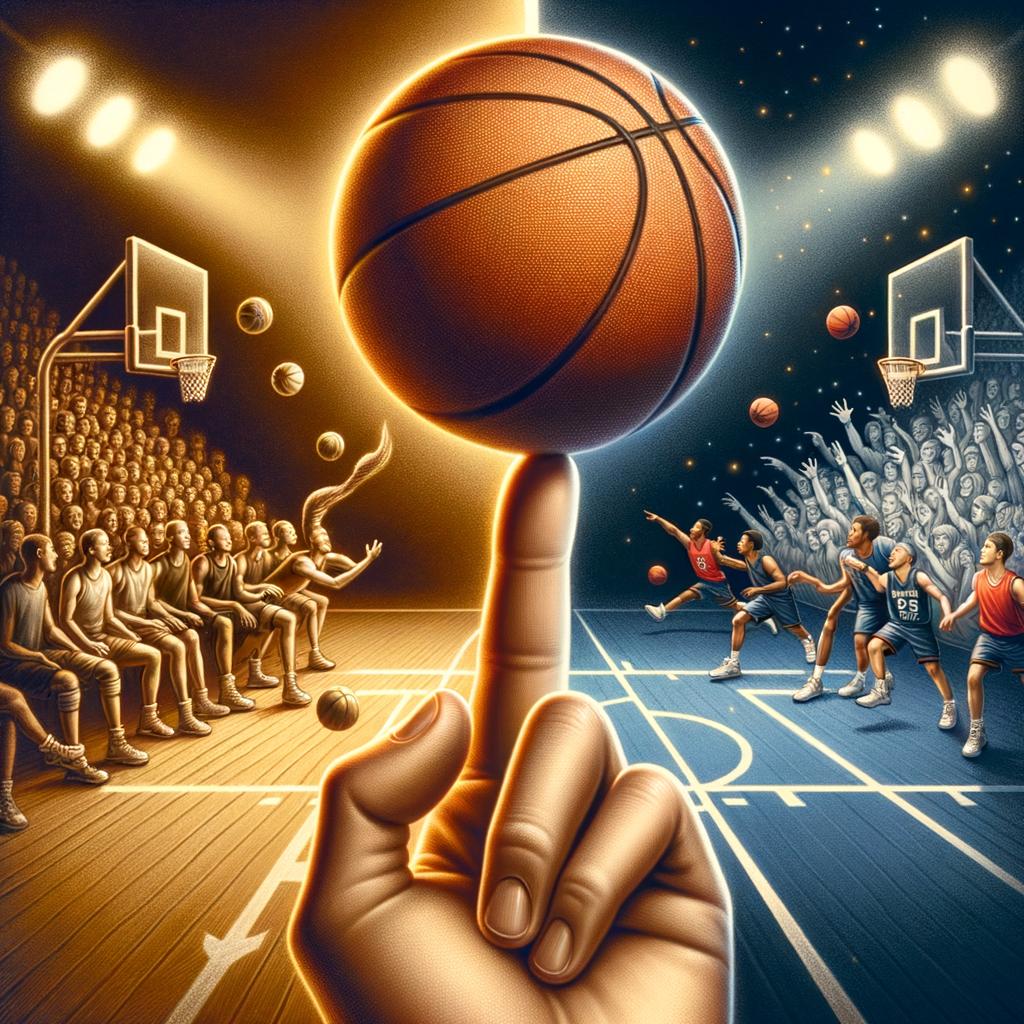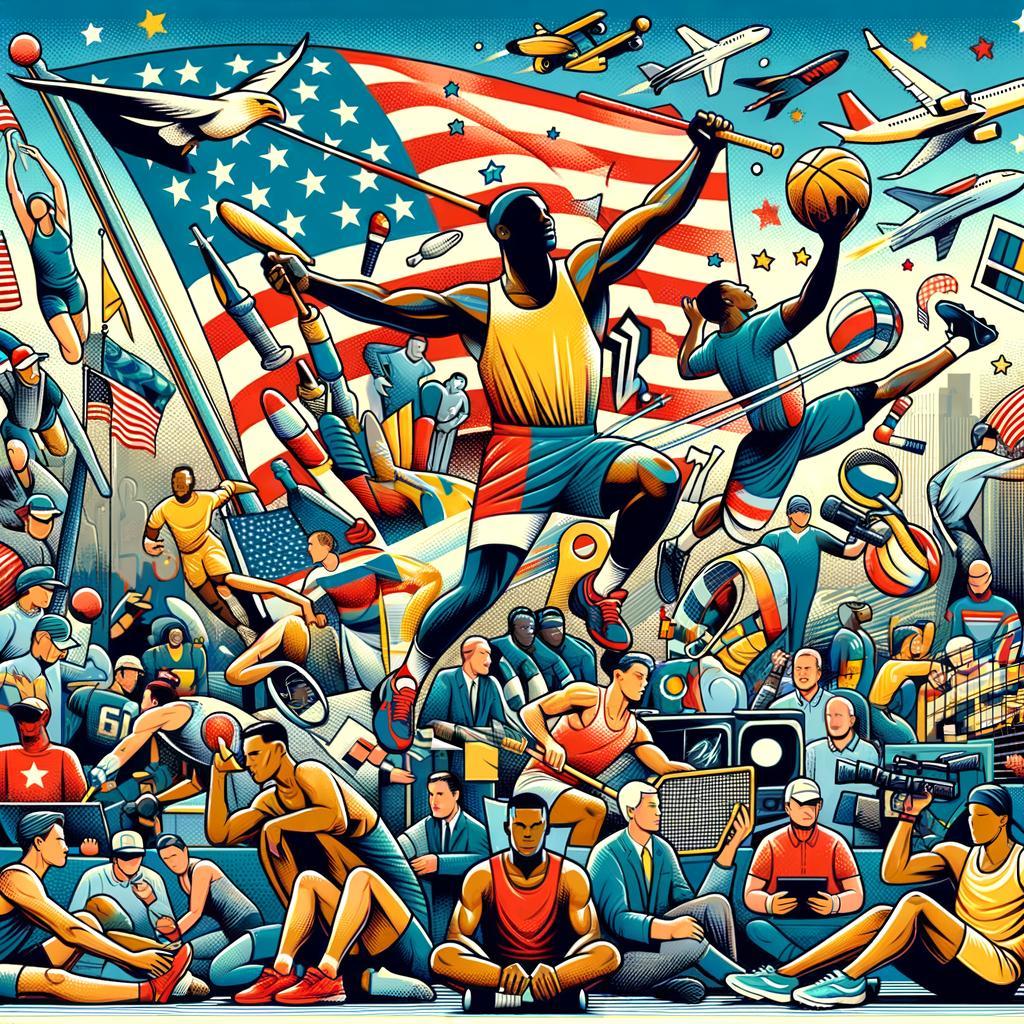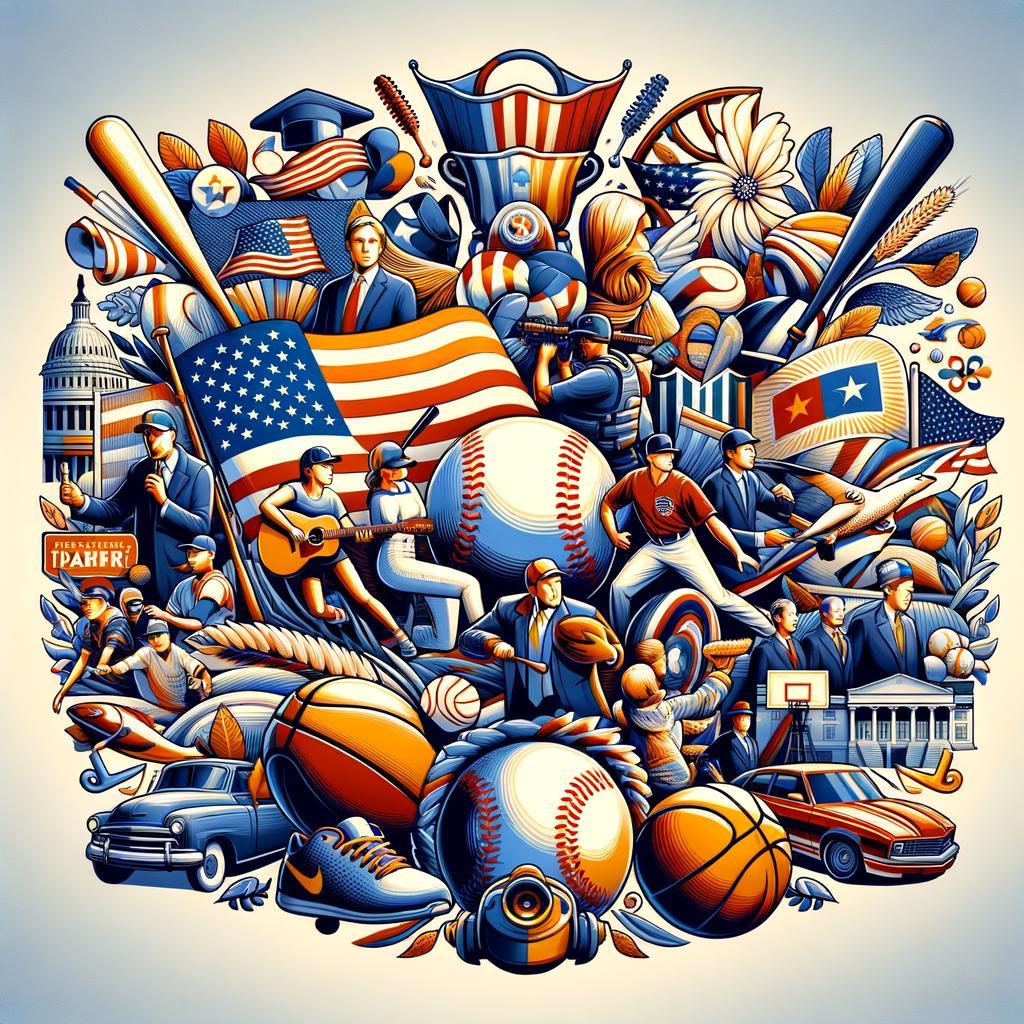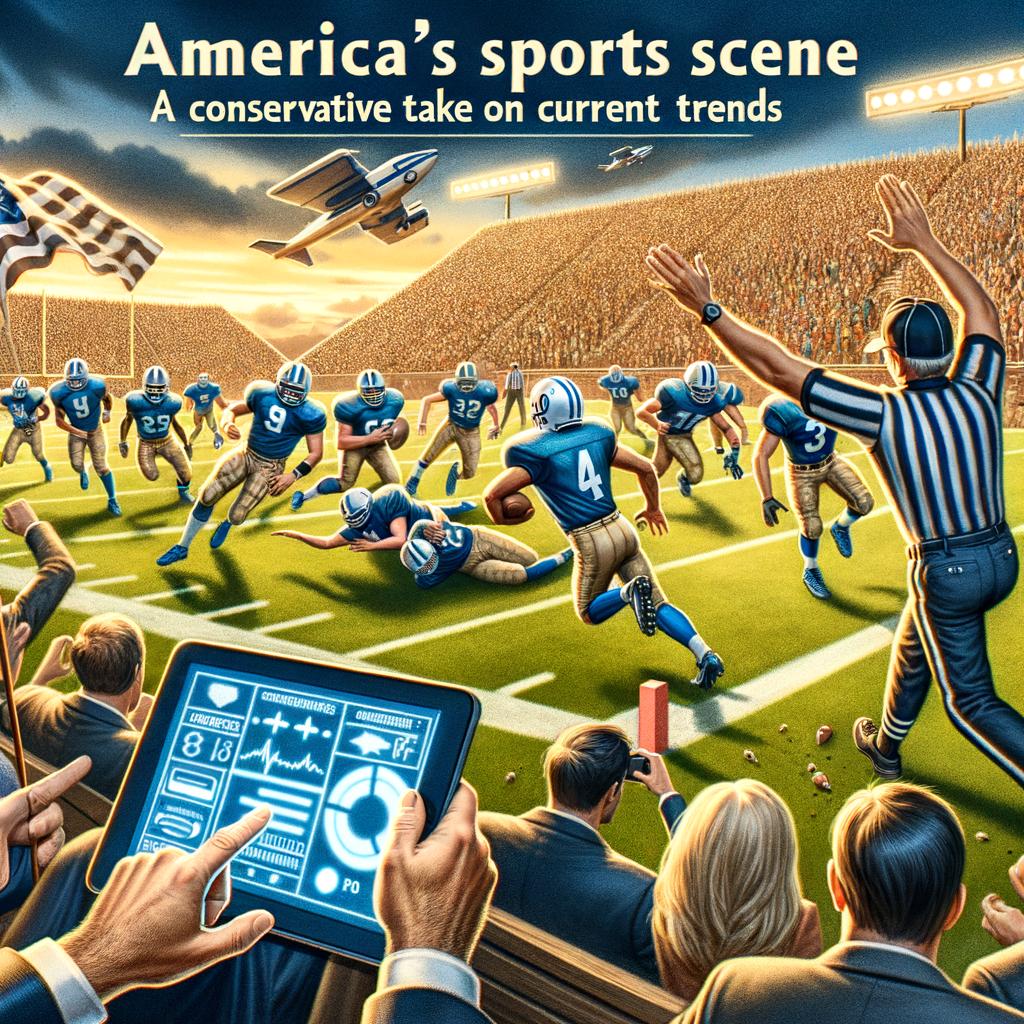America’s Sports Landscape: A Conservative Perspective on Trends
As the sun sets over stadiums filled with cheering fans and the sound of sneakers squeaking on hardwood courts echoes through gyms, America’s sports landscape reflects more than just athletic prowess; it embodies the cultural values, social dynamics, and economic forces that shape our nation. Grappling with shifting trends—from the rise of social justice movements to the increasing interplay between sports and entertainment, this landscape is worth examining through a conservative lens.
In recent years, many have observed a growing disconnect between traditional American values and the messaging permeating professional and collegiate sports. As athletes take to the field not just to compete but to evoke change, it prompts a critical analysis of what these shifts mean for fans, families, and the fabric of our society. From decreasing participation in youth sports to the commercialization of leagues, every trend carries implications for our communities that resonate far beyond the final score.
This article will delve into these trends, highlighting the conservative perspective on their effects. By exploring the interplay between sports and core values such as unity, meritocracy, and respect for tradition, we aim to foster a deeper understanding of how America’s beloved pastime can remain a unifying force while navigating the complexities of a rapidly evolving cultural landscape. Join us as we unpack the narratives shaping today’s sports culture and advocate for a return to principles that honor the true spirit of competition and camaraderie.
The transformation of fan engagement in professional sports signals a shift that often prioritizes marketability over the foundational principles of sportsmanship and community. With the rise of social media platforms and digital content, franchises are investing heavily in creating immersive experiences that draw fans into an ever-more commercialized atmosphere. These strategies include personalized marketing campaigns, interactive fan experiences, and high-tech arenas designed to captivate younger audiences. However, such developments could undermine the values instilled in youth sports, where teamwork, integrity, and character development should take precedence over entertainment value and revenue generation. It becomes imperative for organizations at all levels to balance fan engagement with the preservation of these core principles that make sports a unifying social force.
As youth sports become increasingly scrutinized in light of professional trends, it is essential to reinforce the notion that the primary goal should remain the nurturing of character and community ties among participants. Programs that emphasize hard work, discipline, and respect promote not just athletic prowess but the molding of responsible citizens. When prioritizing these values, coaches and organizations can help foster a generation that appreciates the spirit of competition without compromising integrity. Key elements of effective youth sports programs include:
- Inclusive Participation: Ensuring every child has the opportunity to participate regardless of skill level.
- Mentorship: Pairing young athletes with role models who emphasize character and sportsmanship.
- Community Engagement: Collaborating with local organizations to strengthen community ties through sports initiatives.
Investing in these aspects not only cultivates a positive youth sports culture but also lays the groundwork for future generations to engage with sports in a way that honors tradition while adapting to modern dynamics. It is essential that we do not lose sight of the enduring values that have sustained this beloved pastime through the ages.
The Way Forward
“America’s Sports Landscape: A Conservative Perspective on Trends” highlights the intricate ways in which sports intersect with cultural identity, social values, and political ideology in contemporary America. As we navigate a rapidly evolving sports environment, it is essential to recognize the impact of current trends on the foundational principles that have historically shaped our beloved pastimes.
From the rise of activism within athletic arenas to the commercialization of sports, we must engage in a thoughtful dialogue that respects the traditions that many hold dear while addressing emerging issues. By championing the core values of competition, teamwork, and individual excellence, we can foster an environment in which sports continue to unite rather than divide.
The future of America’s sports landscape will undoubtedly be influenced by ongoing shifts in society; however, holding steadfast to a conservative perspective invites us to appreciate the rich heritage of sports as a reflection of American ideals. As fans, players, and stakeholders, let us remain vigilant in advocating for a sports culture that prioritizes integrity and respects the principles that have made sports a cornerstone of American life. Together, we can ensure that the essence of competition thrives, uniting us in our passion for the games we love while promoting a narrative that resonates across generations.